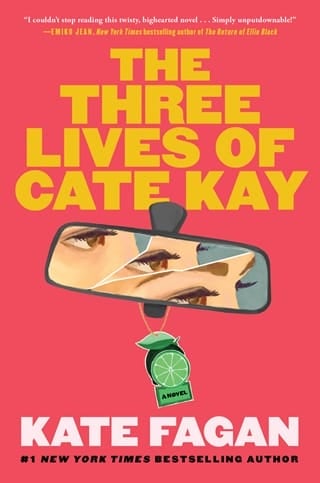Chapter 23 Sidney
CHAPTER 23 SIDNEY
2005
New York City
I knew The Very Last would be huge. Cass finally let me read it after four and a half years of writing and editing and rewriting. That entire time, everything about the book—the premise and characters and setting—was unknown to me. She could have been writing a romantic comedy for all I knew, though I doubted she was, as romance didn’t seem a priority to her, no matter how tender I tried to be. That she would fictionalize some version of her past was also a concern. So, when she finally gave me the book, I was nervous, and I stayed up all night reading it, terrified until the end that something in it would give her away. I put the final page on the stack and looked at her—she was asleep on her side, her back to me.
We lived in a one-bedroom in Harlem. Cass worked at a coffee shop around the corner. I’d put myself on an accelerated track at NYU, summer courses, too, and graduated in two years instead of three, was already working my way up at a prestigious law firm.
Early that morning, I touched her shoulder and gently shook her awake. She looked sleepily back at me until she saw the stack of papers on my lap, and then she pushed herself upright, suddenly alert.
“You read it,” she said. I could hear the hope in her voice. She cared what I thought, and that made me feel better about us; our relationship always felt like such a tenuous thing. Aside from storytelling, Cass’s greatest gift seemed to be absence—that she could easily vacate her physical body. She was almost always somewhere else, and I had started to take it as a personal affront. Had I not given her enough?
Seeing her that morning in bed, fully present, desperate to know my reaction to her work, I fell back in love. “It’s a bestseller,” I said, and as the words came out, I vowed to use every lever at my disposal to make it so.
“You think?” she asked, which was unlike her, seeking repeated positive reinforcement from me.
“We need to make a plan,” I said instead.
“I actually submitted it,” she said, turning on the lamp by her side of the bed. She was impatient—always had been. Whoever first used the phrase putting the cart before the horse was talking about someone very much like Cass. How could she send a copy of this manuscript without first checking with me? No doubt she sensed my disapproval because she added, “Just to this one literary agency—it’s my top choice: Eloquence.”
“And whose name did you use as the author?”
“A pseudonym.”
“What pseudonym?”
“The one I want to use—”
“Which is?” I was annoyed and didn’t try to hide it.
She clenched her jaw, then eased it. “I was getting to that. I decided on Cate Kay.”
“Cate Kay,” I said, testing it out, trying to mentally poke holes in it. “What does it mean?”
“It doesn’t mean anything. I just like the way it sounds.”
 Fullepub
Fullepub 



